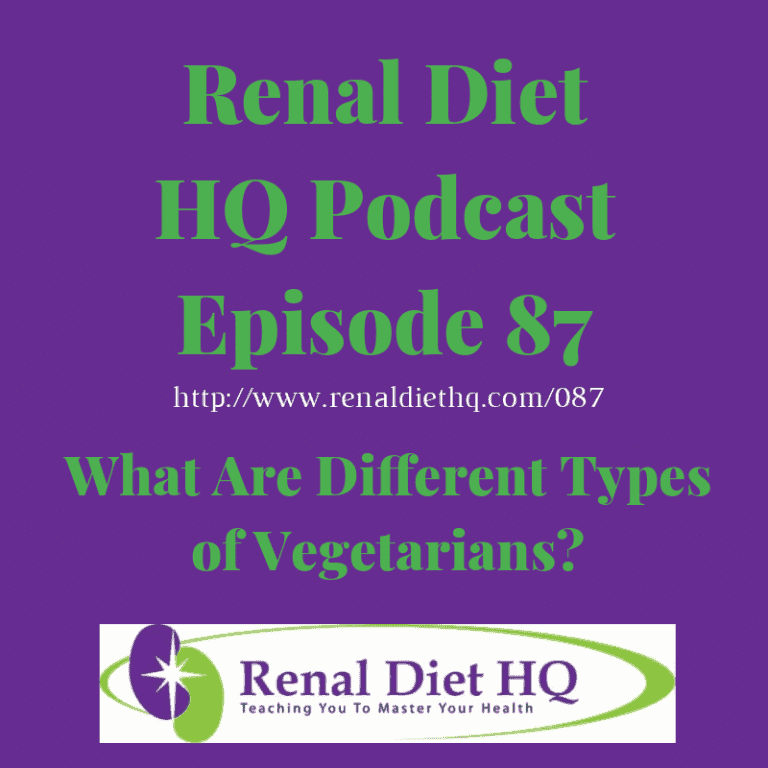Plant-Based Meats vs Animal Proteins for Kidney Health?-Podcast
Podcast: Play in new window | Download

When managing chronic kidney disease (CKD), one of the most important dietary decisions you can make is your choice of protein. The type of protein you consume can significantly impact your kidney health—so understanding the differences between plant-based and animal-based proteins is crucial.
Let’s take a closer look at how plant-based proteins and meat alternatives compare to traditional animal proteins, especially for people living with CKD.
For More Recipes and Ideas --->> Get Your Free Meals and Recipes That Are Perfect for Pre-Dialysis Diets, Pre-Dialysis with Diabetes, or Dialysis Diets.
Why Protein Type Matters for CKD
For people with chronic kidney disease, the kidneys are already working harder than usual. One way to support kidney function is by choosing proteins that place less stress on the kidneys.
Animal proteins—like beef, chicken, and pork—tend to produce more acid and waste products when broken down by the body. This additional burden can be challenging for kidneys that are already compromised.
On the other hand, plant-based proteins are generally easier on the kidneys, making them a smarter option for many people with CKD.
Benefits of Plant-Based Proteins
Plant-based protein sources like lentils, beans, tofu, and peas not only create fewer waste products but also offer additional health benefits. They’re rich in:
- Fiber – Supports digestion and heart health.
- Antioxidants – Help reduce inflammation and protect cells.
- Vitamins and minerals – Essential for overall health.
For those with kidney disease, switching to more plant-based proteins can help reduce kidney strain while improving overall nutrition.
Considerations for Plant-Based Meat Alternatives
You might be wondering about meat alternatives like Beyond Meat or the Impossible Burger. These are convenient and can be a tasty way to make the switch from animal to plant-based proteins.
However, not all plant-based meats are created equal. Some of these products are highly processed and may contain high amounts of sodium—something people with CKD need to watch closely, especially if they also have high blood pressure.
Tips for Choosing Kidney-Friendly Plant-Based Options
Here’s how to make smart choices when selecting plant-based proteins:
- Check sodium content. Choose products labeled as “low sodium” or compare nutrition labels to find the best option.
- Limit processed items. Whole-food plant proteins like beans, lentils, and tofu are generally healthier than packaged alternatives.
- Balance your meals. Pair plant-based meats with vegetables, whole grains, and healthy fats for a complete, kidney-friendly meal.
Plant-based proteins and meat alternatives can be excellent options for supporting kidney health—if you choose wisely. They typically produce fewer waste products and come with added nutrients that benefit your overall health.
But remember: not all plant-based meats are equal. Be mindful of sodium levels and opt for less processed options when possible.
By understanding the impact of your protein choices, you can take meaningful steps toward protecting your kidneys and enjoying a nutritious, satisfying diet.
👀 Looking for More Kidney-Friendly Nutrition Tips?
For more insights and meal ideas, visit RenalDietHQ.com.
Learn more about Low-Salt Breakfast Ideas for Renal Diets: Start Your Day Kidney-Friendly!-Podcast
Learn more about What should I know about canned foods?-Podcast
More Renal Diet HQ Podcast
- Can I Eat Quinoa on a Renal Diet? | Kidney-Friendly Food Tips-Podcast
- Which Drinks Are SAFE for a Renal Diet? The Answers Might Surprise You!-Podcast
- What BBQ Foods Are Kidney-Friendly? Let’s Break It Down!-Podcast
- What do I need to know about Adjusting my Medications as Kidney Function Changes-Podcast








